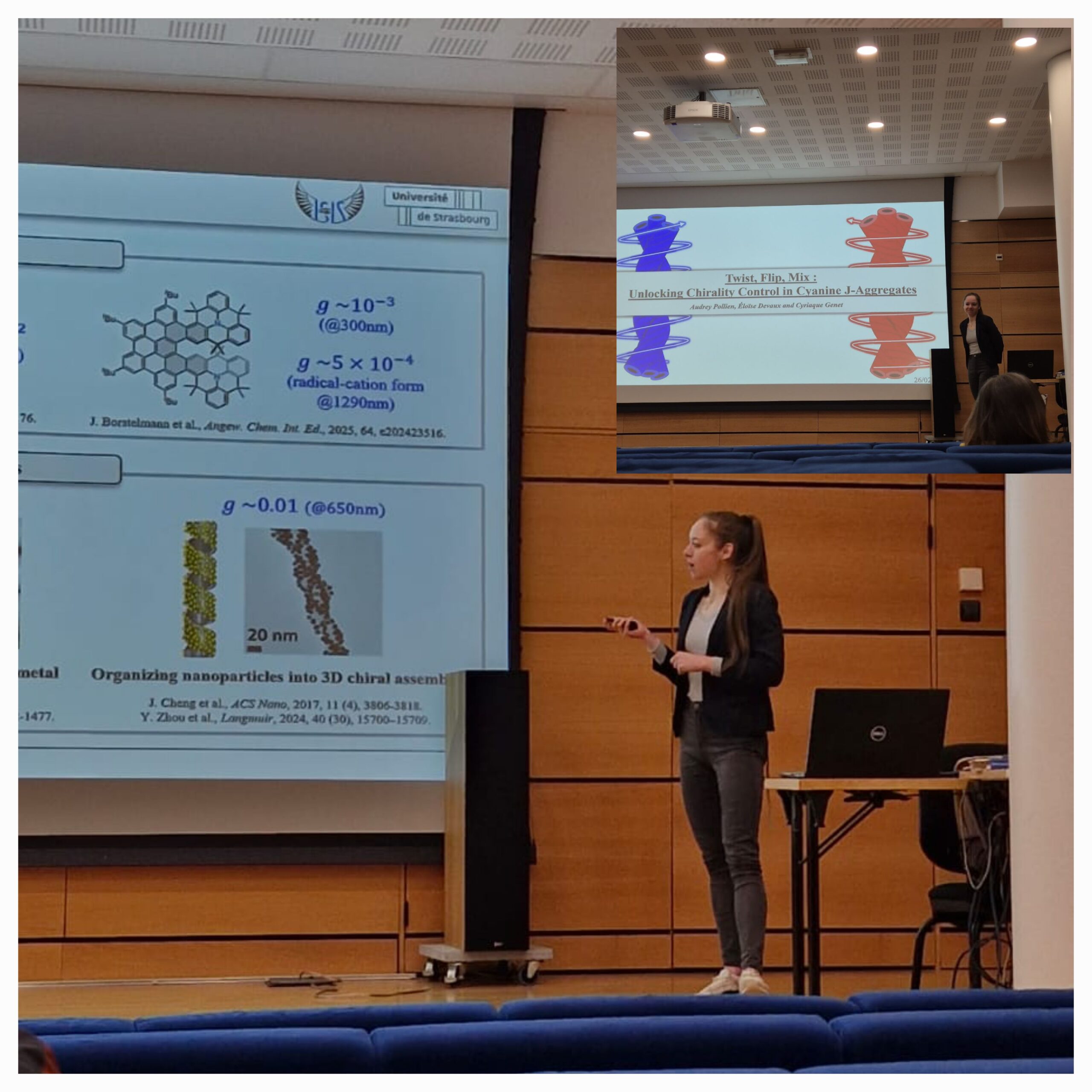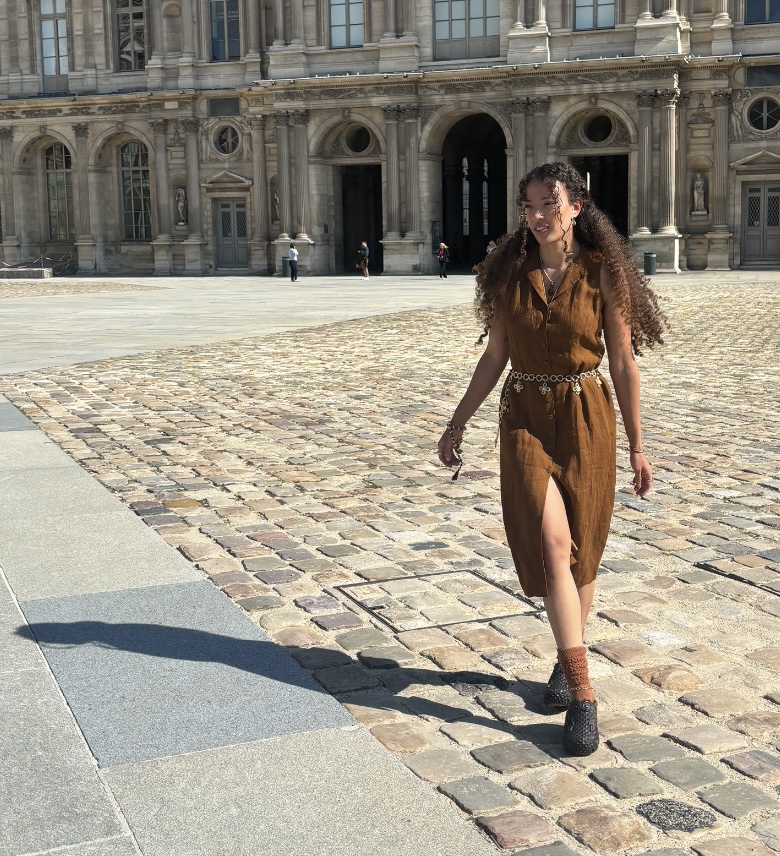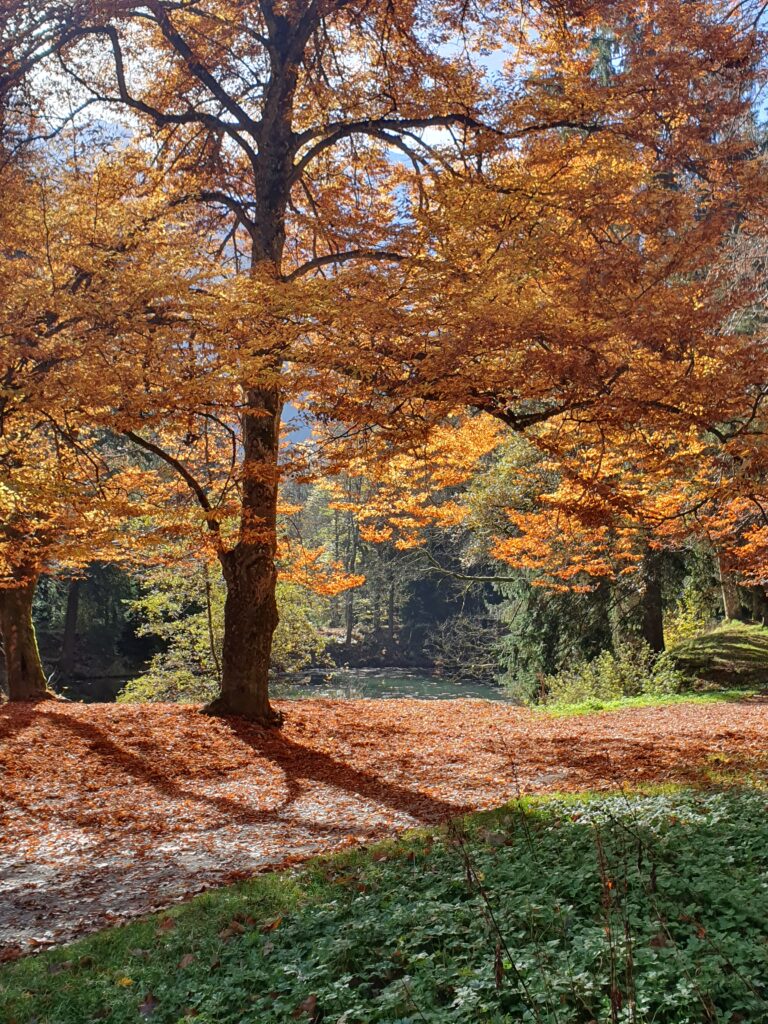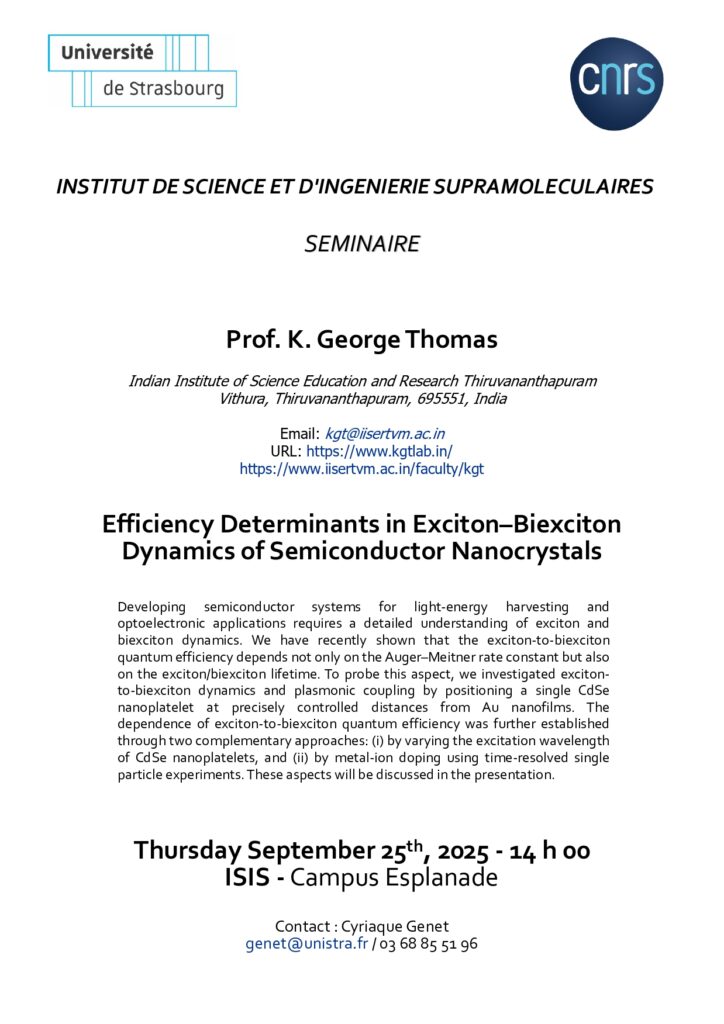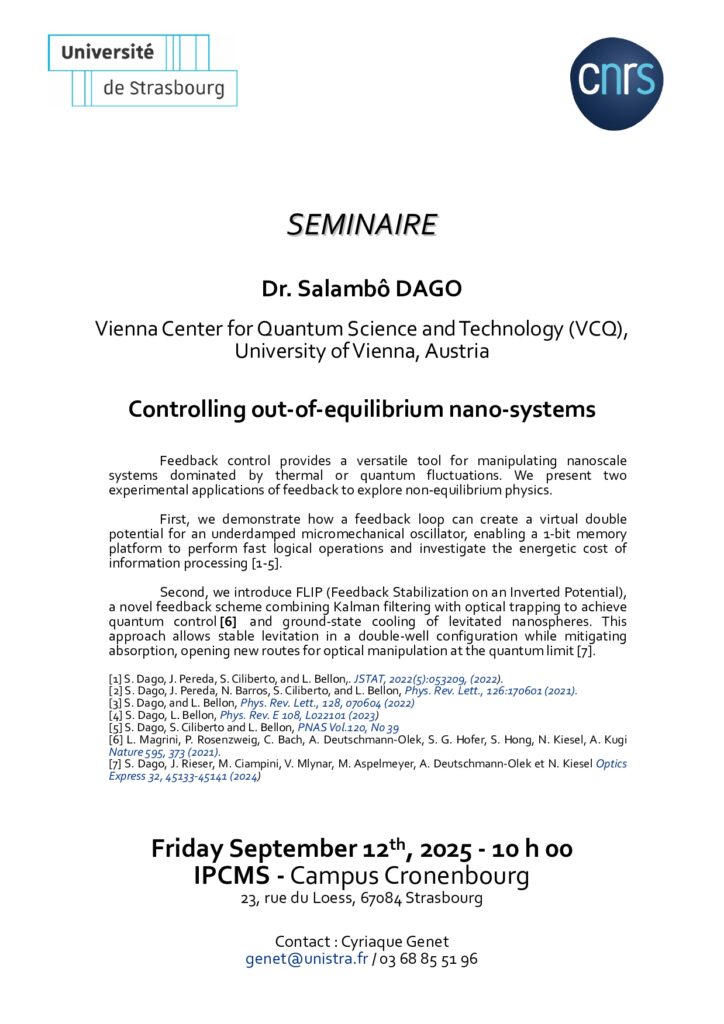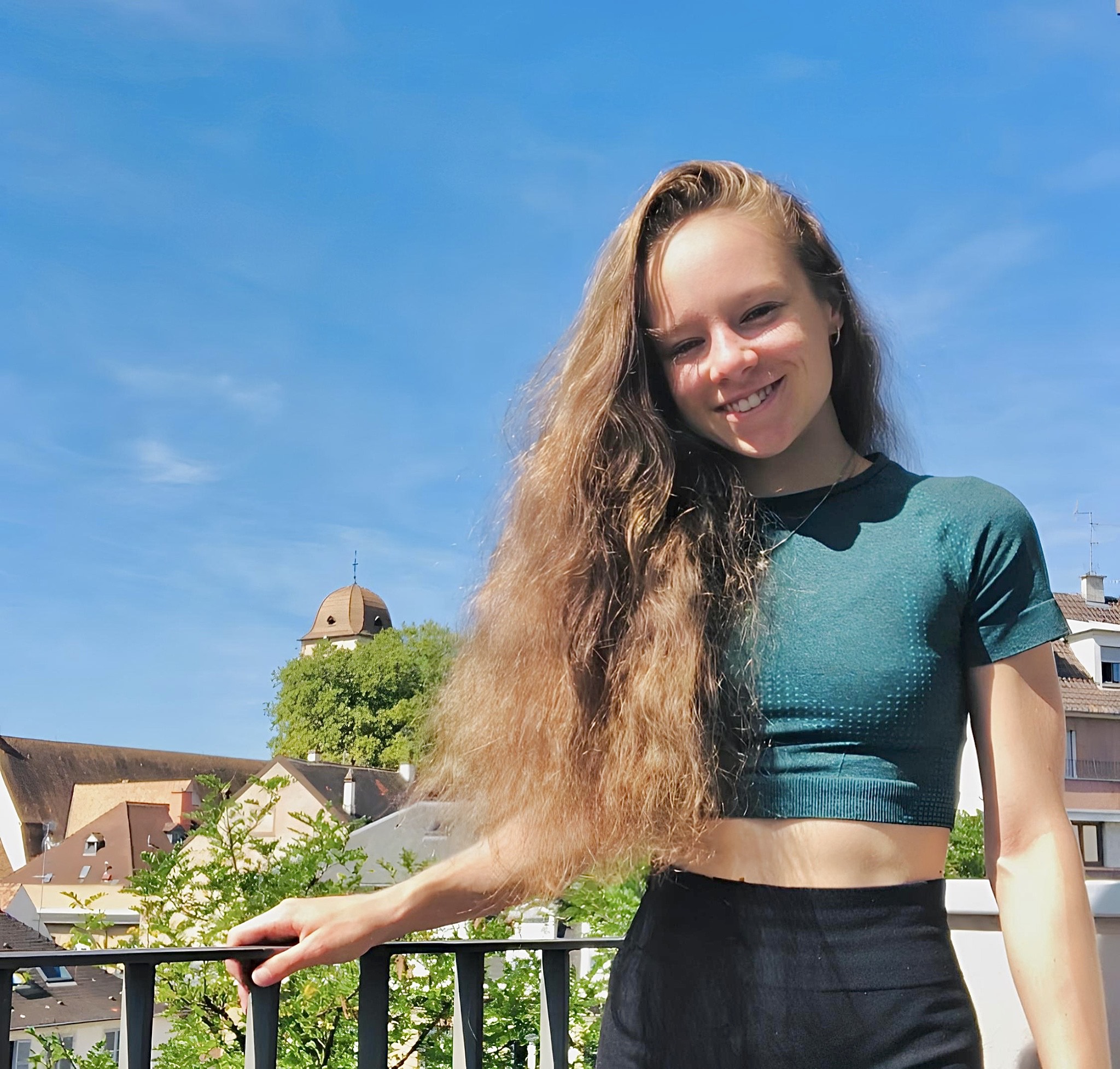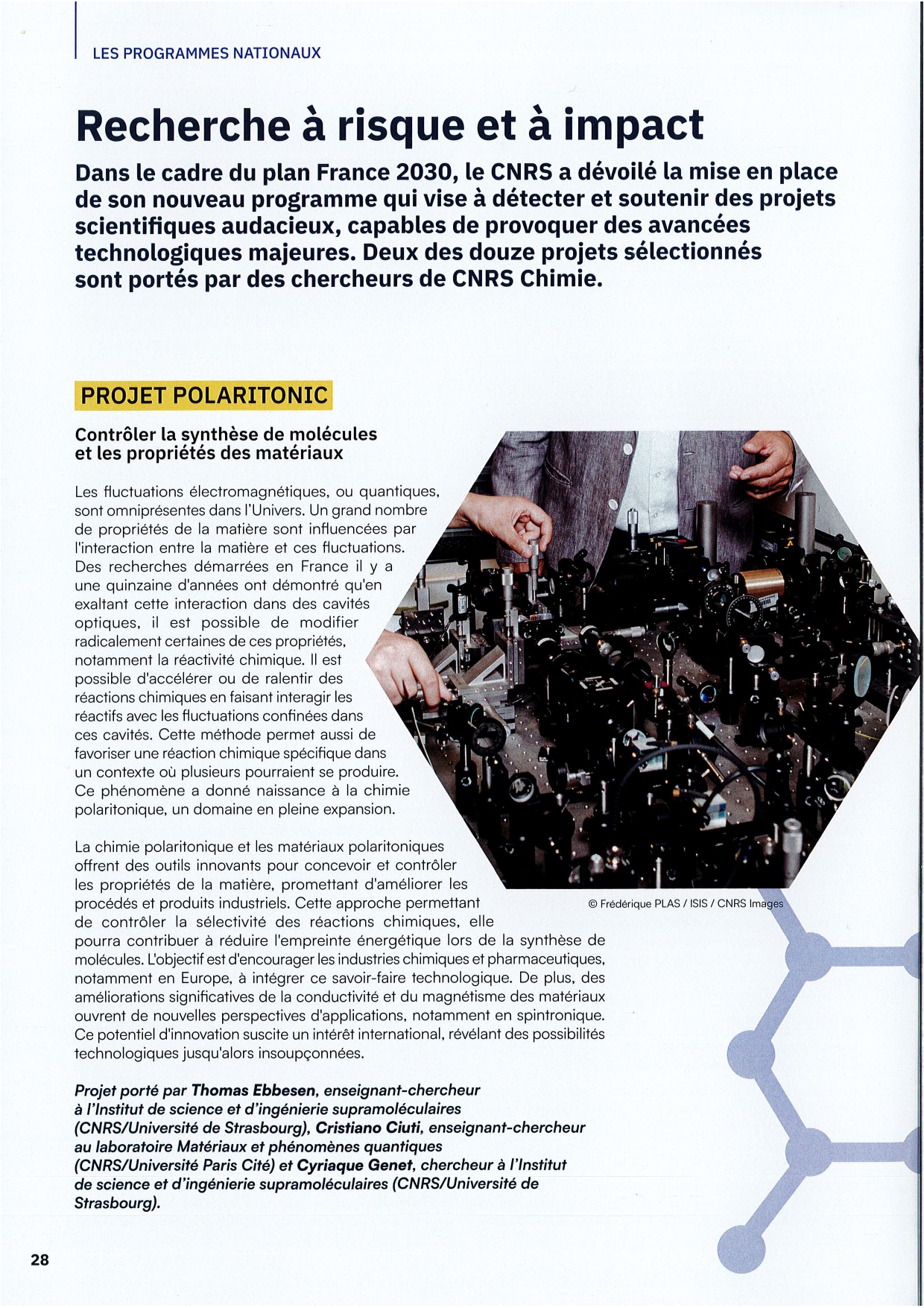Our phD student Audrey Pollien was one of the YSS speaker this morning, together with Laura Bickerton from Giulio Raggazon’s group. She introduced us to the first results of her phD work about the chiralization of cyanine J-aggregates, in solutions or films, characterized by Mueller polarimetry.
Reading by the fire
What is better in the winter than reading by the fire… even better with scientific papers… We added our last publications on the dedicated page, a blend of electronic strong coupling in the liquid state, of stochastic resetting in an optical trap and of calculations of light scattered by chiral dielectric particles. Enjoy !
End of the year
We had our traditional end of the year lab dinner, around a raclette, on December 10, with most of the team members present, some of them with their family, and one former member who arrived just on time for the party. It was a great pleasure to meet everyone in a relaxed and friendly atmosphere. 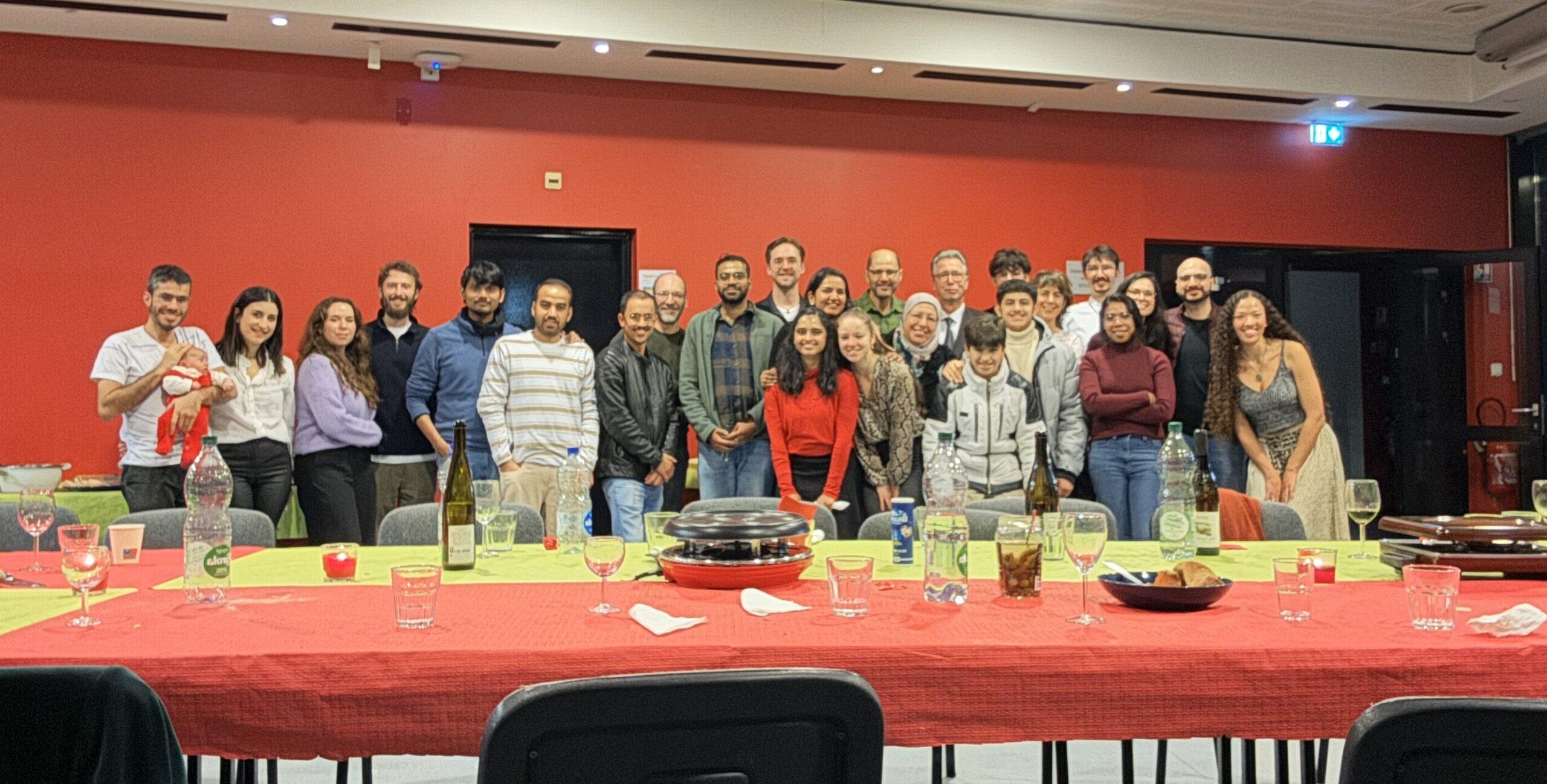
Welcome Dima !
Since nearly two weeks, we have the pleasure to welcome a new post-doctoral researcher in our team, Dimitry Boriskovsky. He received both his B.Sc. and M.Sc. degrees in Physics from Ben-Gurion University of the Negev, Israel. His Master’s research, conducted under the supervision of Prof. Doron Cohen, focused on
theoretical modeling, where he developed minimal models exhibiting negative mobility and sliding-transition phenomena. He completed his Ph.D. in Physics at Tel Aviv University under the supervision of Prof. Yael Roichman. His doctoral work centered on experimental soft and active matter physics, including optical trapping and manipulation of colloidal suspensions, the synthesis of active Janus particles, and studies of macroscopic systems of self-propelled robot swarms. Through the latter, we explored
thermodynamic analogies that extend to inherently athermal, non-equilibrium environments.
In his postdoctoral research, he is excited to investigate the stochastic thermodynamics of nano- and microscale systems, with a particular interest in modern nonequilibrium thermodynamic theorems and relations.
Welcome Dima !
Welcome Tara !
Our latest postdoctoral researcher, Dr. Tara Clayton, arrived a week ago, between a week-end and a holiday. Tara comes from Montana, USA, and got her Bachelor’s in Chemistry at Reed College. She then went on to get her PhD in chemistry from the University of Oregon under the supervision of Professor Ramesh Jasti. She focused on the synthesis of highly strained aromatic macrocycles known as cycloparaphenylenes, CPPs, or carbon nanohoops. She developed synthetic methods aimed at late-stage transformations of CPPs decorated with versatile functional groups, affording efficient synthesis of a variety of CPP derivatives. She explored the reactivity of fluorinated and alkyne-containing CPPs to make novel extended structures including metalated CPPs, redox-active CPPs, novel guest-host CPP-fullerene complexes, and trimeric CPPs. She defended in March 2025 and will now start to explore the vibrational strong coupling. Welcome Tara !
Autumn visitors
After 5 weeks in the lab, Aiswarya Edakkandiyil is close to the end of her stay among us. She is a visiting phD student from Pr. K.George Thomas group who came to characterize her chiral molecules on our polarimetry experiment.
10 years after his departure from the lab, where he was working as a postdoctoral researcher, we are also hosting Atef Shalabney, but for a longer time. Indeed, Atef will be with us till next summer, in detachment from Ort Braude College. He is staying in room 131.
In the framework of the CAPES COFECUB program, we are welcoming since one week Felipe Rosa, assistant professor from the Federal University of Rio de Janeiro for 2 months in our lab. Felipe is a specialist of Casimir forces. He will be in office 104. Don’t hesitate to pass by if you wish to meet him !
To finish, our former student, Shahana Nizar, now in postdoc in University of Parma, was missing the Mueller setup and she is back this week for some more experiments. You can find her behind the black curtain in room 121.
Welcome to all of you !
Seminar Pr K. George Thomas
It is our pleasure to invite you to attend the seminar that Prof. K. George Thomas (Indian Institute of Science Education and Research, IISER-Thiruvananthapuram, India) will give on Thursday, September 25th at 2pm.
The seminar, entitled
Efficiency Determinants in Exciton–Biexciton Dynamics of Semiconductor Nanocrystals
will be held in the conference room of ISIS, central campus.
Do not hesitate to contact Cyriaque Genet if you would like to meet Prof. K.G. Thomas during his visit (Monday 22 to Friday 26).
Seminar Salambô Dago
It is our pleasure to announce the seminar that Dr. Salambô Dago (Vienna Center for Quantum Science and Technology (VCQ) University of Vienna) will give on Friday, September 12th at 10:00 am, in the auditorium of IPCMS on the Cronenbourg campus.
Title and abstract are given below and here.
Do not hesitate to contact Cyriaque Genet if you would like to meet Salambô Dago during her visit on Thursday 11 and Friday 12 of September.
Welcome Audrey !
On September 1st, we welcomed a new phD candidate, Audrey Pollien. Audrey is a student from ENS Paris-Saclay. She already spent one year abroad in 2023/2024 as a predoctoral training, in Heidelberg, in the group of Pr Petra Tegeder. There she studied the optical properties of some molecules (3rd order generation and circular dichroism by two photons absorption). Then she completed her master 2, called CHIPS (Inorganic, Physical and of Solid Chemistry) during which she did another training in PPSM laboratory (Paris-Saclay) on chiroptical properties of 3D chiroplasmonic assemblies. She is now starting her phD under the supervision of Cyriaque Genet on the topic of chiral matter-chiral cavities coupling. Welcome Audrey !
Polaritonic
Each year, the communication department of CNRS Chimie is publishing a booklet summarizing the important events that happened in chemistry in CNRS laboratories during the year. In the one recently published, concerning 2024, there is a full page article about our Polaritonic project, which is, with the one of Wiebke Drenckhan at ICS, one of the 2 for CNRS Chimie.

